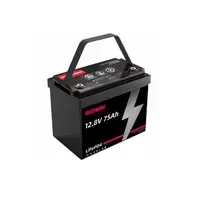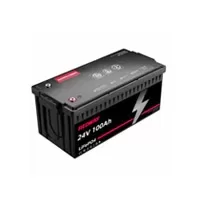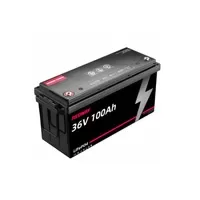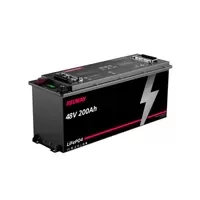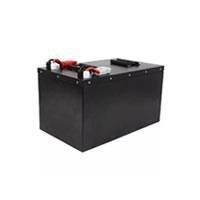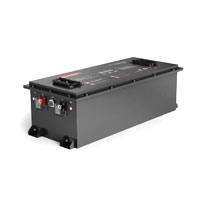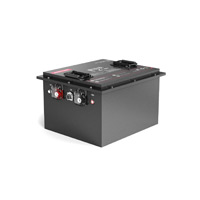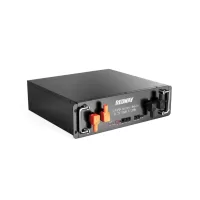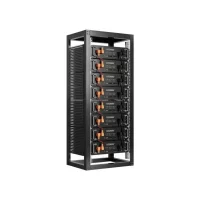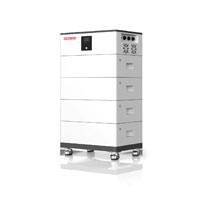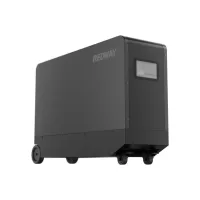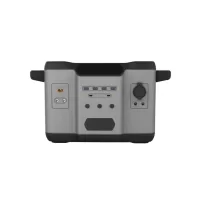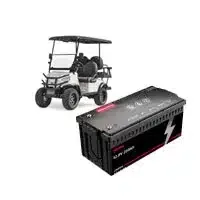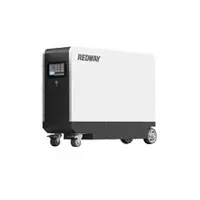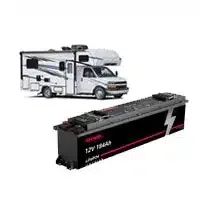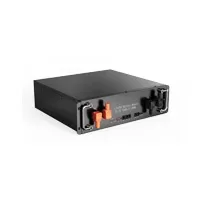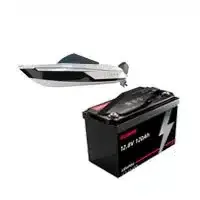(Click to Get a Quick Quote!)
Are you in need of a new battery for your electronic device? If so, you may have come across the terms “OEM” and “non OEM” batteries. But what exactly do these terms mean? And how do they differ from each other? In this blog post, we will delve into the world of OEM and non OEM batteries, exploring their definitions, differences, pros and cons, as well as providing some helpful factors to consider when choosing between them. So grab a cup of coffee and join us on this enlightening journey into the realm of batteries!
What is an OEM battery?
An OEM battery, also known as an Original Equipment Manufacturer battery, is a battery that is specifically designed and produced by the original manufacturer of a device or equipment. In simple terms, it means that the battery being used is made by the same company that made your device.
When it comes to OEM batteries, you can expect high-quality performance and compatibility with your device. Since they are manufactured by the original equipment manufacturer themselves, these batteries are built to meet stringent standards and specifications set by the company.
OEM batteries offer several advantages over non OEM batteries. They provide optimal performance and reliability since they are tailor-made for your specific device model. You can trust that an OEM battery will deliver consistent power output and ensure seamless integration with your device’s operating system.
Moreover, using an OEM battery ensures maximum safety as they undergo thorough testing procedures during production to meet industry standards. This reduces the risk of overheating or other potential hazards associated with substandard batteries.
It’s important to note that while there may be alternatives in the market offering cheaper prices for similar specifications, non OEM batteries might not guarantee the same level of quality assurance as their genuine counterparts.
Choosing between an OEM or non-OEM battery depends on various factors such as cost considerations and personal preferences. However, if you prioritize performance consistency and long-term durability for your electronic devices, opting for an OEM battery would be a wise choice.
What is a non OEM battery?
What is a non OEM battery?
A non OEM battery, also known as an aftermarket or third-party battery, is a battery that is not manufactured by the original equipment manufacturer (OEM) of the device it is intended to be used with. These batteries are typically produced by other companies and may offer compatibility with various electronic devices such as smartphones, laptops, or cameras.
Non OEM batteries are often marketed as more affordable alternatives to OEM batteries. They can be found online or in stores specializing in electronic accessories. These batteries are usually designed to fit specific models of devices and feature similar specifications and performance capabilities as their OEM counterparts.
One advantage of using a non OEM battery is cost savings. Since they are not branded by the original manufacturer, these batteries tend to be cheaper than their OEM counterparts. This can be particularly beneficial for individuals on a budget who still want reliable power sources for their devices.
However, there are some potential drawbacks to consider when opting for a non OEM battery. Quality control might vary among different third-party manufacturers, leading to inconsistencies in performance and potentially even safety risks. Additionally, using a non OEM battery could void any warranty provided by the device’s manufacturer.
Before purchasing a non OEM battery, it’s important to research reputable brands and read customer reviews to ensure reliability and safety. It’s also essential to verify compatibility with your specific device model since not all aftermarket batteries may work correctly or efficiently.
While non OEM batteries offer cost savings compared to their branded counterparts, consumers must weigh factors such as quality control and warranty implications before making a decision about which type of battery best suits their needs.
The differences between OEM and non OEM batteries
When it comes to batteries, there are two main types you’ll come across: OEM and non OEM. Understanding the differences between these two options can help you make an informed decision when purchasing a new battery for your device.
OEM stands for Original Equipment Manufacturer. An OEM battery is one that is made by the same company that manufactured your device. These batteries are specifically designed to meet the exact specifications of your device and ensure optimal performance.
On the other hand, non OEM batteries are aftermarket alternatives produced by third-party manufacturers. While they may be compatible with your device, they are not made by the original manufacturer.
One key difference between OEM and non OEM batteries lies in their quality and reliability. Since OEM batteries are made by the original manufacturer, they often undergo rigorous testing to ensure compatibility and performance. Non OEM batteries, on the other hand, may vary in terms of quality control standards.
Another difference is price. Generally speaking, non OEM batteries tend to be more affordable compared to their OEM counterparts. This can be appealing for those looking for a budget-friendly option.
However, choosing a battery isn’t solely about cost or brand name – it’s also important to consider factors such as warranty coverage and safety features provided by both types of batteries.
Whether you opt for an OEM or non-OEM battery will depend on your priorities – if you prioritize compatibility and peace of mind knowing that your battery was specifically designed for your device’s needs, then an OEM option might be worth considering. Conversely, if affordability is at the top of your list without compromising functionality too much – a well-reviewed third-party alternative could work just fine.
Pros and cons of using an OEM battery
Pros and Cons of Using an OEM Battery
When it comes to choosing between an OEM (Original Equipment Manufacturer) battery and a non-OEM battery, there are several factors to consider. Let’s take a look at some of the pros and cons of using an OEM battery.
One major advantage of opting for an OEM battery is the guarantee of compatibility. Since it is specifically designed for your device, you can be confident that it will fit perfectly and function seamlessly. This minimizes the risk of any damage or malfunction caused by using a subpar battery.
Another benefit is the assurance of quality. OEM batteries are manufactured by the same company that produced your device, which means they undergo rigorous testing to meet strict standards. This translates into improved performance, longer lifespan, and increased reliability compared to non-OEM batteries.
Additionally, using an OEM battery often comes with warranty coverage. This provides peace of mind knowing that if anything goes wrong with your battery within the warranty period, you can get a replacement or repair at no extra cost.
However, one downside to using an OEM battery is its higher price tag compared to non-OEM options. Since it carries the brand name and guarantees compatibility and quality, manufacturers tend to charge a premium for these batteries.
Furthermore, availability may be limited when it comes to replacing your OEM battery. Non-OEM batteries are widely available from various third-party sellers both online and offline; however, finding an exact replacement for your specific device model might require more effort when sticking with an OEM option.
Finally yet importantly are customization limitations associated with using an OEM battery. While these batteries ensure optimal performance for your device as intended by the manufacturer, they may not provide certain features or specifications found in alternative options on th
Pros and cons of using a non OEM battery
Pros and cons of using a non OEM battery
Non OEM batteries, also known as aftermarket or third-party batteries, offer an alternative to the original equipment manufacturer (OEM) batteries. They can be appealing for several reasons.
One major advantage of non OEM batteries is their cost-effectiveness. These batteries are often cheaper than their OEM counterparts, making them a more affordable option for consumers. This can be particularly beneficial if you need to replace multiple batteries or if you’re on a tight budget.
In addition to being cost-effective, non OEM batteries may also provide better performance in certain cases. Some third-party manufacturers specialize in creating high-quality replacement batteries that match or even exceed the specifications of the original battery. This means that you could potentially get longer battery life or faster charging with a non OEM option.
Another benefit of non OEM batteries is their availability. While some proprietary brands may limit access to their products, third-party companies often produce compatible options for various devices and models. This wider selection allows you to find a suitable replacement battery without relying solely on the manufacturer’s offerings.
However, using a non-OEM battery does come with its drawbacks as well. One potential downside is compatibility issues. Since these batteries are not specifically designed by the original manufacturer, there’s always a small risk that they may not fit perfectly or work optimally with your device.
Quality control can also be an issue with non-OEM options. While many third-party manufacturers strive for excellence, there are some lesser-known brands out there that may produce inferior quality products. It’s important to do thorough research and read reviews before purchasing any aftermarket battery to ensure it meets your expectations in terms of safety and reliability.
Moreover, warranty coverage might differ when opting for a non-OEM battery compared to an official one from the manufacturer directly. Some third-party sellers offer warranties on their products while others may not have such comprehensive protection plans in place.
When deciding between an OEM and non OEM battery, it’s crucial to weigh the pros and cons. Consider factors
Factors to consider when choosing between OEM and non OEM batteries
When it comes to choosing between OEM and non OEM batteries, there are several factors that you should consider before making a decision.
Compatibility is crucial. You need to ensure that the battery you choose is compatible with your device. OEM batteries are specifically designed for a particular brand or model, so they are more likely to be a perfect fit. On the other hand, non OEM batteries may have varying levels of compatibility and may not provide the same level of performance.
Quality matters. OEM batteries are manufactured by the original equipment manufacturer themselves, ensuring high quality and reliability. They undergo rigorous testing and adhere to strict standards. Non OEM batteries, on the other hand, come from third-party manufacturers who may not follow these stringent guidelines.
Next up is warranty coverage. OEM batteries often come with a warranty provided by the manufacturer, giving you peace of mind in case any issues arise. Non OEM batteries may or may not have such warranties available.
Price also plays a role in decision-making. While non OEM batteries generally tend to be cheaper than their branded counterparts, it’s important to weigh this against potential risks such as lower quality or lack of warranty coverage.
It’s essential to consider reviews and feedback from other users who have used either type of battery for your device model. Their experiences can give you valuable insights into performance and longevity.
In conclusion (as per instructions), considering factors like compatibility, quality assurance through rigorous testing processes carried out by the original equipment manufacturers (OEMs), warranty coverage options included with most branded products but potentially absent in alternative choices from third-party manufacturers – all while comparing prices against potential risks associated with those lower-priced alternatives – will help guide your decision when choosing between an Original Equipment Manufacturer (OEM) battery versus its non-OEM counterpart for optimal results!
Conclusion
Conclusion
When it comes to choosing between OEM and non OEM batteries, there are several factors to consider. OEM batteries offer the advantage of being specifically designed for your device, ensuring compatibility and optimal performance. They also often come with a warranty from the manufacturer.
On the other hand, non OEM batteries can be more cost-effective and provide comparable performance in some cases. However, they may not always have the same level of quality control or longevity as OEM batteries.
The decision between OEM and non OEM batteries depends on your priorities and budget. If you value guaranteed compatibility and peace of mind, an OEM battery is likely your best bet. But if affordability is a key consideration for you, a non OEM battery might be worth exploring.
Before making a choice, take into account factors such as price, reputation of the manufacturer or seller, reviews from other users, warranty options (if any), and your specific needs regarding battery life and performance.
Remember that using an incompatible or low-quality battery can potentially damage your device or result in subpar performance. It’s essential to make an informed decision based on reliable information before purchasing a replacement battery for your electronic devices.
In conclusion (without saying “in conclusion”), weigh all the pros and cons carefully when deciding between an original equipment manufacturer (OEM) battery or a non-OEM alternative. The choice ultimately rests in your hands – prioritize what matters most to you: reliability at higher costs versus affordability with potential risks.


